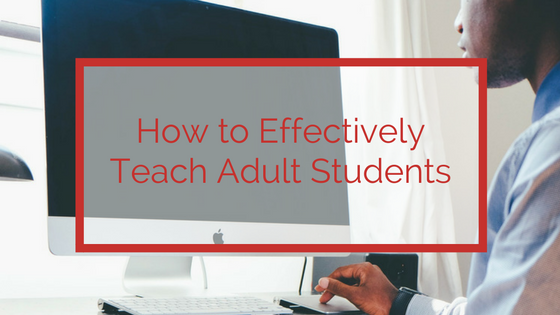
With the recent influx of adult students, the “traditional” student body makeup has shifted; no longer are students the typical twenty-somethings, fresh out of high school, plucking away at a college degree. The “nontraditional student,” or the adult student, has much more challenging needs and considerations, starting with their variety. “They may be 25-or 75. They may work full-time or part-time, or be between jobs. They may have children or other dependents. They may be striving for their first professional career foothold. or perhaps even coming off active duty in the deserts of Afghanistan” (“Success for Adult Students, 3). No one adult student is going to be the same; however, there are some commonalities in the makeup of adult students that can help professors effectively gear the classroom to accommodate their varied needs.
The adult student tends to face challenges that his or her traditional collegiate peers do not: Multiple life roles, such as being both a student, parent, spouse, or any other functional role of adulthood; more life experience, which can both help or hinder the learning of new ideas and information; and further development in their life path, thus making their learning goals much more targeted and demanding (Polson, 1993, 1-2). All of these challenges have implications on how professors can gear educational conversations in more conducive ways.
Cheryl Polson’s “Teaching Adult Students,” a publication of Center for Faculty Evaluation and Development, posits the considerations that a professor must make in regard to their adult students.
. Course work must meet their needs. Because most adult learners are seeking higher education as a way to meet very specific needs, it is necessary for the instructor to gather information on their students and their level of experience with the course material-whether that be through direct interview or written response (1993, 2). From there, the course can be adapted to fit what the adult learners need from their course.
. Course work must be applicable to everyday tasks. As many adult learners feel that “time is running out,” it is necessary to integrate everyday uses of new material so that they may immediately be applied. (2) For example, assigned case studies of relatable life situations, or direct interaction with the professional field, such as interviews or panels, would engage learners in their field of interest (2).
. Larger amounts of experiences have different impacts on learning. Adult learners have had much more opportunity to develop preconceptions and may have very personal responses if new material directly contradicts their lifelong viewpoints (2-3). Taking time to allow students to compare and contrast their own experiences with new course material while paying attention to patterns of reaction, professors can create an environment in which adult learners will have valid methods of input and room to adapt to new material (3).
. Aging impacts the process of learning. The further along in the aging process a student is, there is a potential for “decline in vision, a decline in reaction time, or a decline in short-term memory” (3). Providing various forms of learning, steadily paced progression of course material, and emphasizing the direct application of course material provides adult learners a chance to grasp new or complex material (3).
With careful consideration of the dynamics that adult learners bring to the classroom, a professor can easily mitigate any challenges that may otherwise cause anxiety for “nontraditional” students. Adult learners bring interesting perspectives and relevant experience to their coursework that-in a respectful environment driven on application-will benefit adult learners and traditional learners alike.

